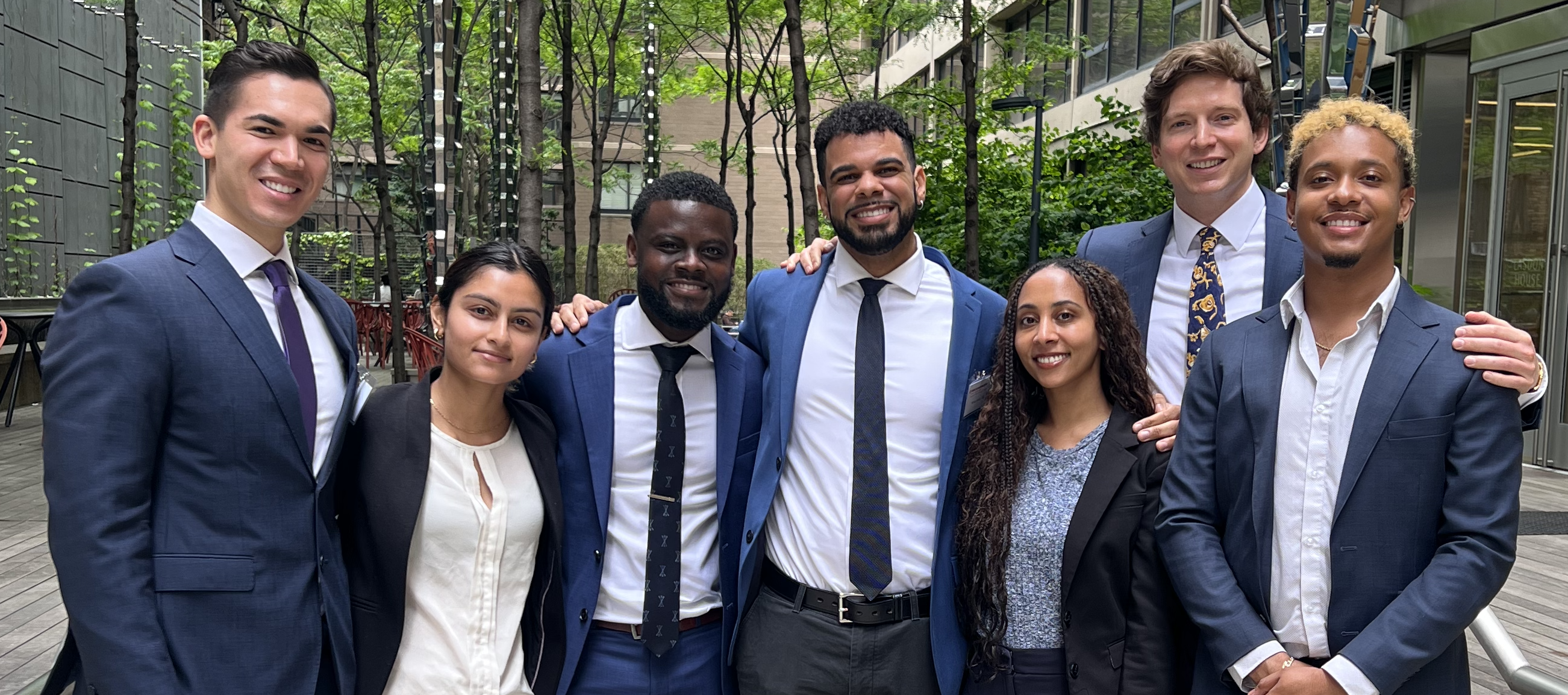The NewYork-Presbyterian Hospital-Weill Cornell Medicine (NYP-WCM) Ophthalmology Residency Program fosters the development of outstanding clinicians, surgeons, academicians, and leaders in ophthalmology who possess the skills necessary to expertly diagnose and manage the full spectrum of ophthalmic disease. Recognizing its excellence, selection for the program is highly competitive: in recent years we have received approximately 150 qualified applications per available position. The program is fully accredited by the Accreditation Council for Graduate Medical Education (ACGME). The NYP-WCM Ophthalmology Residency Program is under the leadership of Dr. Kyle J. Godfrey.
At the heart of the program is an unparalleled diversity of learning opportunities. This starts with a rich clinical learning environment and world-class institutions. These institutions include NewYork-Presbyterian Hospital, Weill Cornell Medicine, New York Presbyterian Queens, Memorial Sloan Kettering Cancer Center, and Hospital for Special Surgery:
The NewYork-Presbyterian/Weill Cornell Medical Center is a highly specialized, quaternary care, university medical center. Here, our residents provide the highest level of clinical and therapeutic care for patients with a variety of complex ocular pathologies. Residents are also actively involved in the care of inpatients on our consultation service, providing treatment as integral members of interdisciplinary teams, including assisting with care in the nation's largest and busiest burn center.
The NewYork-Presbyterian Queens Eye Center is a community hospital, located 10 miles from the main Weill Cornell Medicine campus, which serves the most culturally diverse county in the United States. Almost half of Queens' residents are international-born, and over half of the population speaks a language other than English at home.
The Weill Cornell Medicine Lower Manhattan and Brooklyn sites (Lower Manhattan/Financial District and TriBeCa and Downtown Brooklyn) are community-based sites. They serve diverse populations and multiple underserved communities. The Lower Manhattan/Financial District office also serves as the home of our renowned Kress Vision Program, a unique charity organization that provides a single standard of ophthalmic medical and surgical care to uninsured patients in need.
The Memorial Sloan Kettering Hospital is a world-renowned oncology specialty hospital and Hospital for Special Surgery is among the nation’s top hospitals for rheumatology (and orthopedic surgery). These institutions provide our residents with access to advanced pathology and cutting-edge expertise and innovation.
Across these institutions, our residents care for a diverse cohort of patients, exposing them to a wide breadth of pathology and treatment options that span from the very common to the extremely rare. Additionally, the social, cultural, and economic diversity of practicing medicine in these populations facilitates development of critical skills in patient communication, culturally competent care, and professionalism.
To help our residents maximize the benefits of this dynamic clinical and social milieu, extraordinarily dedicated teaching faculty closely mentor residents across all four years of training. This close faculty mentorship helps residents develop as clinicians and researchers while identifying and pursuing their professional goals. Through individual and collective mentorship, our residency program provides the foundational support and resources to foster and support resident interests in leadership, clinical care, teaching, and research to prepare them for success in any career path.
Recognizing the program’s growing faculty, clinical volume, and surgical volume, the ACGME approved an increase from three to four residents per year in 2022. We have grown purposefully into this complement size by adding one additional resident during each academic year. After four years of growth, the program will be a 16-resident, four-year, fully integrated program during the 2025-2026 academic year. Throughout this growth process, resident surgical volume has continued to increase. These sustained increases reflect growing faculty numbers, increased emphasis on early surgical experience and longitudinal development across the four-year program, and significant investments by our faculty in resident surgical development.
Program Aims
- To train clinicians and surgeons to possess the skills necessary to expertly diagnose and manage the full spectrum of ophthalmic diseases.
- To mentor and train ethical and compassionate physicians to deliver high quality, patient-centered care to people of diverse cultural and socio-economic backgrounds.
- To cultivate an attitude of lifelong, self-directed learning and to teach residents to critically evaluate the literature to deliver timely, evidence-based care.
- To provide basic, translational, and clinical research opportunities, and to inspire residents to develop, investigate, and answer hypothesis-driven research questions.
- To foster the individual interests of residents, by providing mentorship and resources to help residents identify and pursue their professional goals to become the next generation of ophthalmic leaders and innovators.


